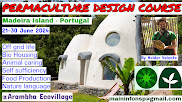Triops mauritanicus
Triops o camarão pré histórico do tempo do gyngko que ainda se pode encontrar no algarve e costa vicentina e sudoeste alentejano, se encontrarem algum avisem porque está a desaparecer rápidamente
This species is considered to be the oldest living species on the planet ... 200 million years old
The species is considered a human ally against the West Nile virus, as the individuals consume Culex mosquito larvae. They are used as abiological agent in Japan, eating weeds in rice paddies. In Wyoming, the presence of Triops longicaudatus usually indicates a good chance of the hatching of spadefoot frogs. Dried eggs of Triops longicaudatus are sold in kits to be raised as aquarium pets, sold under the name of "aquasaurs."
Triops longicaudatus is eaten by frogs and birds. It is most active at a temperature of around 20°
Triops food:
Carrot.
Take a plain ordinary carrot and shave the outside skin off. Then shave a few fragments off of the freshly exposed underskin. You don't have to parboil (boil it in water for 3 mins) the vegetable first. But the Triops can eat it much faster if you do. As you can imagine, one carrot will last you a very very long time!
Lettuce.
Parboil a leaf and then break it up into very small and I mean very small fragments. Once more a little goes a long way! By the way, if you've got fish in your tank with your Triops then you'll find most Omnivore fish love the taste of Lettuce too.
Potato.
Peel the skin off and parboil a chunk of it. If you have any roots on your potato eyes then these make excellent food for Triops too. Once more finely chop them into small fragments.
Earthworm.
Yes your common earth worm can be fed. But make sure it's a really small one. Leave the earth worms in a bowl for 6 hours to ensure that their digestion tubes become empty and then rinse them out over a old rag to ensure they are clean. This stops you accidently introducing disease.
Bloodworm.
Bloodworms are small red chironomid midge larvae. They are the natural prey of freshwater fishes. This worm is often fed to aquarium fish as a treat and is a firm favourite of any meat eating aquatic animal.
It comes from pet shops in a small plastic bag which contains water and the floating live bloodworms. Just pour the worms onto a cloth so that the polluted water doesn't go into your tank and drop the required amount of bloodworms into the tank.
One important point, some people are allergic to the bloodworm if it touches your skin (similar reaction as if you were allergic to dogs or cats). See here for details. Best to wash your hands after handing this food. Of course you should be doing this before as well as afterwards. Your fish don't know where you've been!
Water fleas (Daphnia).
This aquatic creature is usually fed to fish and it is also common to find you've got Daphnia supplied in with your Triops when you first hatch them out from a kit or packet! If you don't have any then most pet shops can supply you with live Daphnia for a few pence or you can buy a container of dried Daphnia which float on the surface and so will encourage your Triops to swim for their supper. Alternatively place a bowl of water (2 litres say) outside for a few days and you should find it full of tiny creatures which you can feed to your ever hungry Triops.
Flys.
Yes, your common fly can be caught (if not killed by fly spray) and dropped into your tank.
Se trata de un fósil viviente y un auténtico superviviente cuyos huevos pueden resistir varios años en condiciones extremas de sequía y frío. Si en la población escasean los machos, las hembras pueden reproducirse por partenogénesis sin la colaboración de estos.
http://en.wikipedia.org/wiki/Tadpole_shrimps
http://www.interplaydirect.co.uk/triop-world-4-p.asp
http://www.triops.com/index.php?link=product8
http://www.toyops.com/index.php?link=triops













Sem comentários:
Enviar um comentário
Thank you to all the support